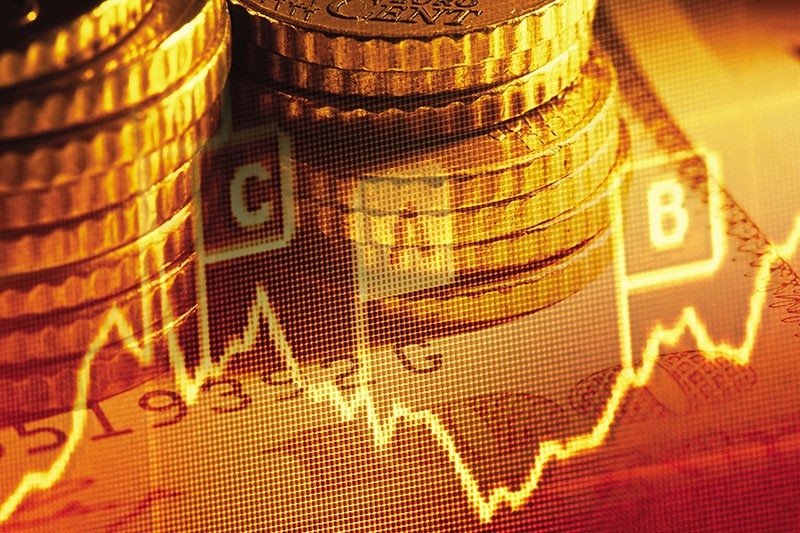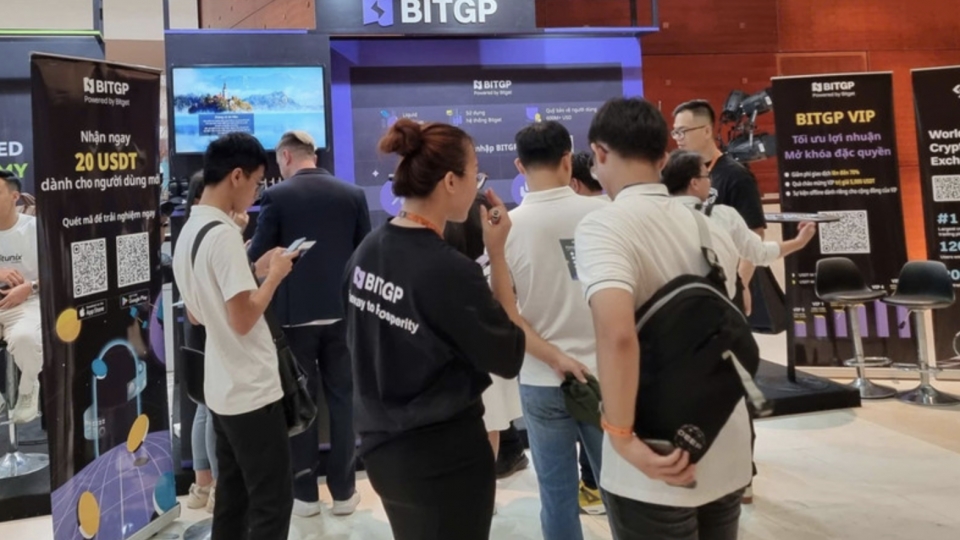Legal trading platforms to make digital asset market transparent
The underground flow of hundreds of billions of US dollars into Vietnam’s cryptocurrency and digital asset market is set to be legalised as the country prepares to launch a series of official trading platforms, which are expected to serve as attractive investment channels, potential fundraising avenues for businesses.

Vietnam has an estimated 17 million digital asset holders, with annual cryptocurrency transactions valued at around US$105 billion. However, blockchain experts believe this figure is only the tip of the iceberg as actual participation is likely much higher. The recent exposure of multiple fraudulent crypto platforms has indicated the risk of operating without official exchanges.
The Hanoi Department of Public Security recently dismantled a network led by Dang Quoc Thang, who established Maxx Group to promote cryptocurrency projects such as Wingstep and Game Naga Kingdom. The company raised about US$7.86 million from over 3,000 investors by promising high commissions and extraordinary returns before collapsing and misappropriating all funds.
Similarly, the Department of Public Security in Phu Tho province cracked down on a pyramid scheme disguised as digital currency investment. The group, led by Nguyen Chanh Dang, persuaded thousands of investors to buy TCIS tokens through the website https://tcis.ai, creating more than 4,000 accounts and raising over US$2 million in just over a year.
Earlier, in May, police of Dong Nai province uncovered Matrix Chain (MTC), a large-scale cryptocurrency network defrauding tens of thousands of people of nearly VND10 trillion (US$379.7 million).
Experts warn that the absence of a legal framework has left investors vulnerable.
Cryptocurrency is highly attractive to Vietnamese investors, but without proper regulations, the market has been stifled and prone to fraud, General Secretary of the HCM City Blockchain Association Tran Xuan Tien was quoted by Dau tu (Vietnam Investment Review) newspaper as saying. He urged investors to equip themselves with basic blockchain knowledge to recognise risks and avoid being swayed by exaggerated promises.
Nguyen The Vinh, CEO of Ninety Eight, noted that the number of Vietnamese holding digital assets far exceeds stock market investors, underscoring the appeal of this type of asset. However, he cautioned against platforms offering “unrealistic” returns since no legitimate business model can guarantee such high profits.
Transparency needed to protect investors
Several domestic enterprises and banks, including SSI Securities, TCBS Securities, and Military Bank (MB), are preparing to engage in the digital asset market. Vietnam is expected to establish about five exchanges linked to international platforms, with around 50 digital assets available for trading. The plan also allows the issuance of asset-backed tokens for fundraising, restricted to foreign investors.
Huynh Quoc Nam, Business Development Director of OKX Global – a large cryptocurrency exchange operator, perceived that licensed platforms will bring greater transparency and reduce fraud risks by enforcing customer identification through Know Your Customer (eKYC). They will also generate tax revenue for the State and promote related industries.
Blockchain firms hope that official exchanges will encourage Vietnamese start-ups to return home instead of relocating to Singapore, while attracting foreign capital and building a fintech ecosystem aligned with global trends.
At a Government press conference in early August, Deputy Finance Minister Nguyen Duc Chi announced that the ministry is drafting a decree on piloting digital asset transactions, drawing on regional and international experience. The draft will soon be finalised and submitted to the Government for approval, possibly within this month.
Calls for swift action
Tien stressed the urgent need for such platforms, warning that if Vietnam does not open digital asset exchanges in the next one to two years, the country will be left behind. He suggested that domestic exchanges should manage liquidity and data, while international platforms should be allowed to participate to ensure competition, knowledge transfer, and stronger risk management.
Experts emphasised that the top principle in operating digital asset exchanges is transparency in trading volumes, costs, and liquidity to prevent manipulation and protect investors. Exchanges must also prioritise cybersecurity and strictly separate company assets from client holdings, they noted.
For investors, experts warned that while the crypto market is highly attractive, it is also extremely risky.
Without knowledge and experience, the more you invest, the more you stand to lose, Vinh said, adding that beginners should proceed with caution and take it slow.



